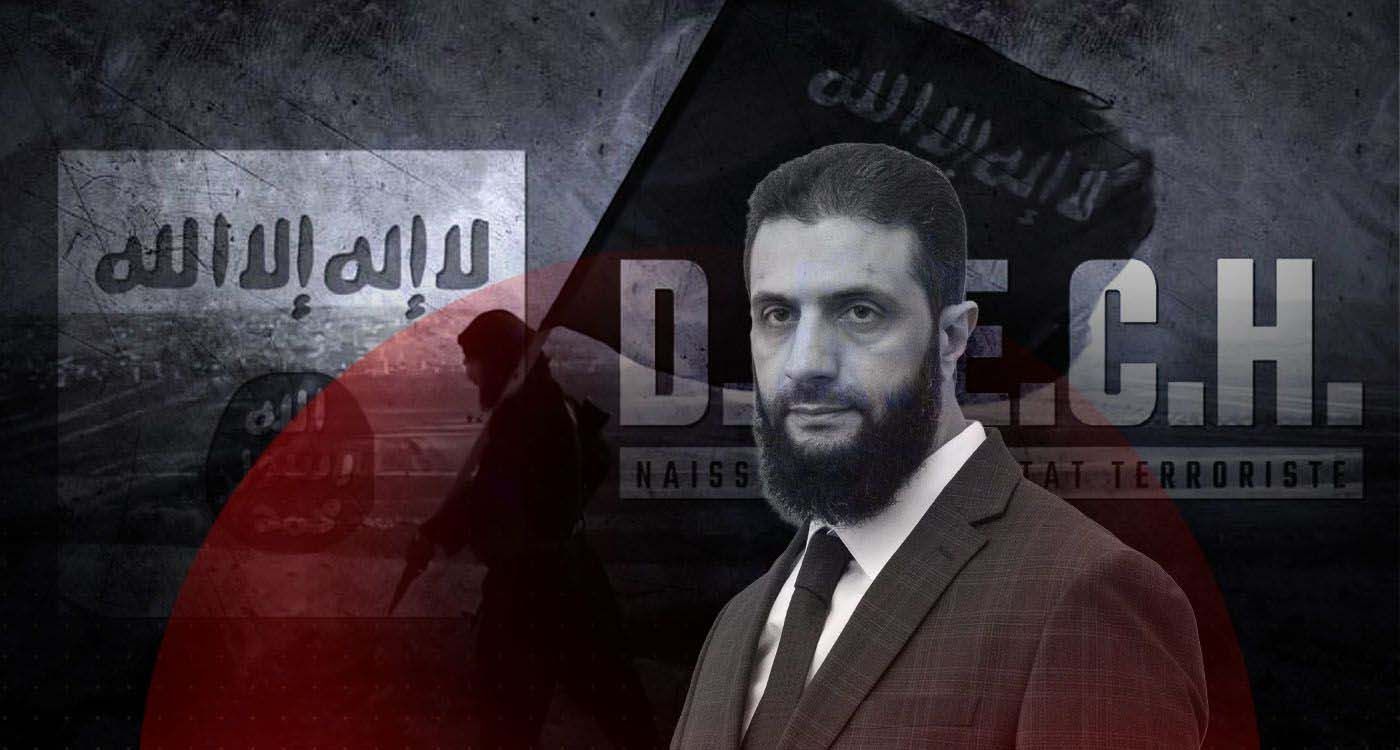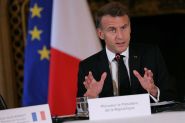- Home
- Middle East
- Can Ahmad al-Sharaa Deliver on His Anti-ISIS Policy?

©This is Beirut
Ahmad al-Sharaa, once a senior figure in the jihadist group Hay’at Tahrir al-Sham (HTS), has emerged as a central player in post-Assad Syria. Since taking power in December 2024 in a country ravaged by 13 years of war, Sharaa has positioned himself as a pragmatic and reform-minded leader, both to foreign governments and Syria’s deeply fragmented society.
One of his most high-profile objectives has been to politically reposition HTS, distancing it from its militant Islamist roots. At the heart of this rebranding effort is a public campaign to confront the Islamic State (ISIS). Sharaa has denounced the group’s brutality and expansionist aims, pledging to eradicate its remaining presence in Syria.
But the question remains: does he have the political authority, military capability, and territorial control necessary to deliver on that promise?
A New Front Against ISIS
Since assuming power, Sharaa has stressed the need to counter ISIS, particularly in Syria’s remote and under-governed regions. His administration has launched operations aimed at boosting internal security and preventing the resurgence of Islamist extremism.
Drawing on his prior experience fighting ISIS in Idlib during his HTS tenure, he now seeks to replicate those successes across the country, a daunting task given the group’s stronghold in Syria’s desert terrain, which offers ideal conditions for guerrilla warfare.
Since January 2025, Syrian government forces have intensified operations against ISIS, intercepting planned attacks and dismantling sleeper cells, including one discovered in Aleppo in May.
These efforts have earned Sharaa growing international support, as well as cautious approval from Syrians who do not see him as merely an extension of the jihadist movements that once dominated the region.
His rising international credibility has even helped lay the groundwork for Syria’s diplomatic reintegration, with several countries reopening dialogue with Damascus.
Structural Weaknesses and Bloody Setbacks
Yet despite these advances, Sharaa’s campaign is hampered by a lack of economic, military, and institutional resources. The events in Latakia in March 2025 offered a grim reminder of the state's fragility: Syrian army units carried out massacres targeting Alawite civilians, leaving 1,557 dead. The government failed to prevent the bloodshed—and has since struggled to contain its political fallout.
Thomas Pierret, a research fellow at France’s IREMAM and a specialist on Syria, warns that further atrocities could trigger renewed international sanctions, undermining Sharaa’s claims to protect Syria’s minorities. Although Sharaa swiftly ordered an investigation into the Latakia killings, no findings have been released. A silence that points to his limited control over state institutions, particularly the security apparatus.
Another pressing challenge lies in military integration. Efforts to unify Syria’s fragmented armed groups under a single national army have been slow and politically fraught. Deep divisions persist between factions with differing allegiances -some still aligned with Turkey- undermining command cohesion. Though the Ministry of Defense claims progress, Pierret calls the integration “largely symbolic,” noting that many units remain financially and operationally dependent on external actors.
The arrest of ISIS members within the army itself has further fueled doubts about the loyalty of some units. In practice, the military remains as fractured as ever, more politically consolidated than operationally functional.
Meanwhile, Syria’s intelligence services face mounting pressure. ISIS attacks are increasing, particularly in desert regions, while underfunded and overstretched intelligence networks struggle to keep pace. Decades-old equipment from the Assad era needs replacement, salaries must be paid, and basic supplies are often lacking.
Diplomatic Gains and Regional Backing
Still, despite these limitations, Sharaa’s approach is beginning to unlock strategic opportunities. Syria has garnered regional support, from Iraq, which shares concerns about ISIS’s cross-border activity, to Gulf states seeking to counter Iranian influence. Even Turkey, motivated by economic considerations, has joined intelligence-sharing initiatives aimed at curbing ISIS in northern Syria.
On the international stage, momentum is building. While Western governments continue to classify HTS as a terrorist organization, many are reevaluating their stance toward Sharaa’s leadership.
France, for instance, hosted the Syrian leader earlier this year, with President Emmanuel Macron expressing support for his anti-ISIS efforts. In January, the United States reportedly assisted Syrian intelligence in preventing a major ISIS offensive.
A gradual easing of sanctions, originally imposed during the Assad era, could further accelerate economic recovery, potentially boosting Syria’s counterterrorism capacity. According to Pierret, Damascus now enjoys "good relations" with several international actors eager to stabilize the region.
Ahmad al-Sharaa’s anti-ISIS policy is neither flawless nor guaranteed to succeed. Limited by internal weaknesses and unresolved conflicts within his own ranks, his government still struggles to impose full control. However, his determination, combined with growing international and regional support, may yet help stabilize a nation long defined by war.
Whether that will be enough to dismantle the ISIS threat once and for all remains to be seen.
Read more



Comments